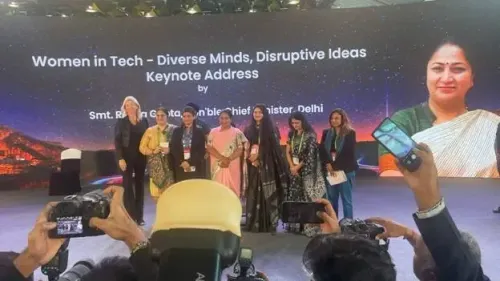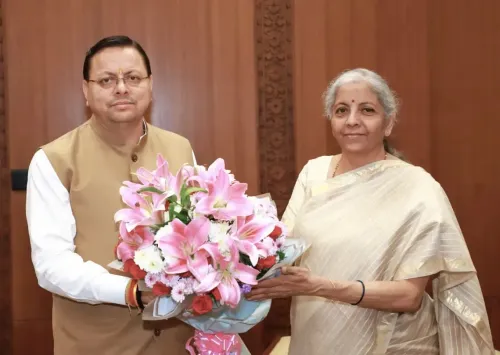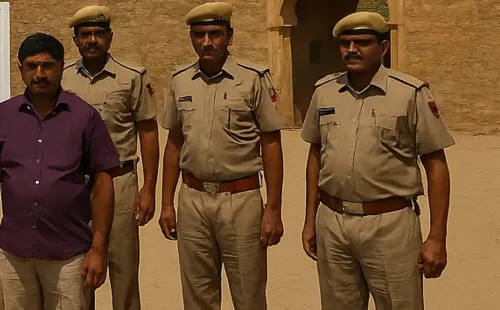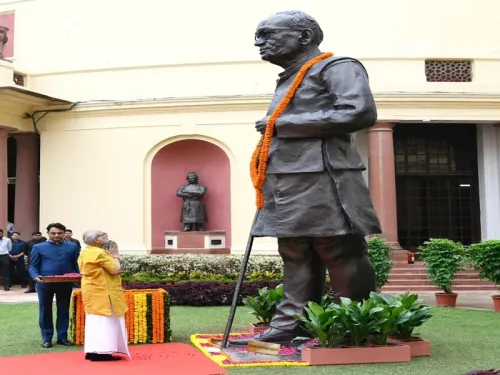How Are India and the UK Addressing Violent Extremism and Strengthening Defence?
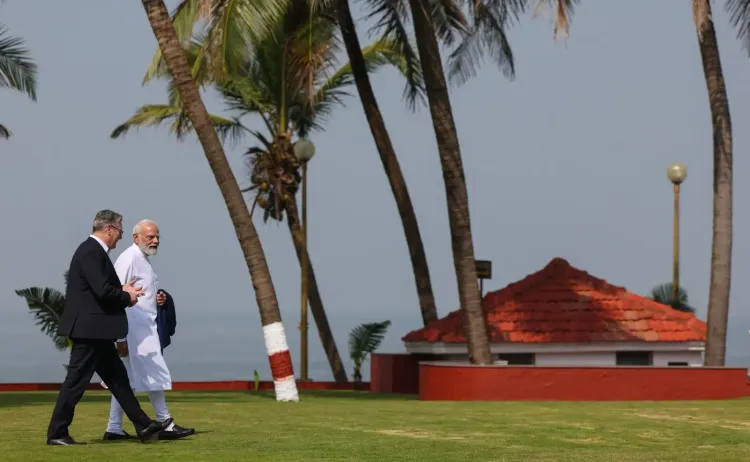
Synopsis
Key Takeaways
- Commitment to zero tolerance for terrorism.
- Strengthened military cooperation between India and the UK.
- Plans for joint defense exercises.
- Support for global peace initiatives.
- Condemnation of the April 2025 attack in Pahalgam.
Mumbai, Oct 9 (NationPress) Prime Minister Narendra Modi and the UK Prime Minister Keir Starmer categorically condemned terrorism and violent extremism in all its forms during their meeting in Mumbai on Thursday.
In a Joint Statement released post-discussion, they emphasized a zero tolerance approach towards terrorism, advocating for unified international efforts to combat it in a thorough and sustained manner, consistent with the UN Charter and international law.
The leaders committed to tackling radicalization, the financing of terrorism, and the cross-border movement of terrorists. They also sought to prevent the misuse of emerging technologies for terrorist activities, combat terrorist recruitment, and enhance cooperation in judicial and information sharing.
Additionally, they expressed a strong condemnation of the April 2025 terrorist attack in Pahalgam, Jammu and Kashmir, and pledged to strengthen collaboration against globally recognized terrorists and their sponsors.
The Joint Statement further highlighted plans to enhance bilateral military exchanges, including joint exercises and capacity building between the armed forces of India and the UK. PM Modi expressed enthusiasm for the UK’s Carrier Strike Group port call and the Royal Navy’s exercise KONKAN with the Indian Navy.
Both leaders agreed on robust maritime security cooperation in the Indo-Pacific, planning the establishment of the Regional Maritime Security Centre of Excellence under the Indo-Pacific Oceans Initiative.
In discussions about training cooperation, they welcomed advancements in integrating Indian Air Force Qualified Flying Instructors into UK Royal Air Force training, along with an agreement to strengthen their educational relationship.
They announced plans to proceed with a government-to-government initiative for supplying Lightweight Multirole Missile (LMM) systems, aimed at enhancing India's air defense capabilities and supporting long-term collaboration on sophisticated weaponry.
In reiterating their commitment to global peace and a rules-based international order, both leaders expressed intent to work closely on reforming multilateralism and the United Nations Security Council (UNSC), with the UK reaffirming its support for India's aspirations for permanent membership in a reformed UNSC.
They also voiced support for a fair and lasting peace in Ukraine in line with international law, welcoming ongoing diplomatic initiatives.
In relation to the Middle East, they called for restraint and compliance with international law, emphasizing the need to prevent actions that could exacerbate tensions.
Both leaders expressed support for the US peace plan for Gaza, advocating for a swift and lasting ceasefire, the release of hostages, and the provision of humanitarian aid, all aimed at achieving a sustainable solution and a two-state framework.

